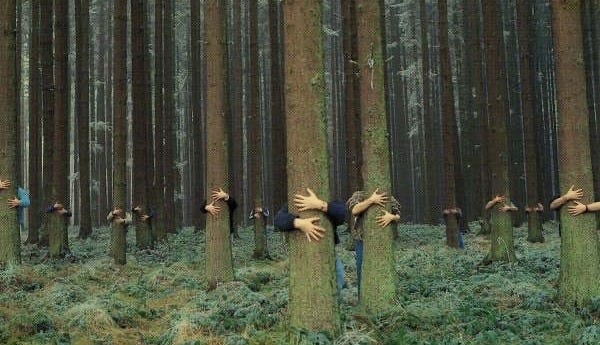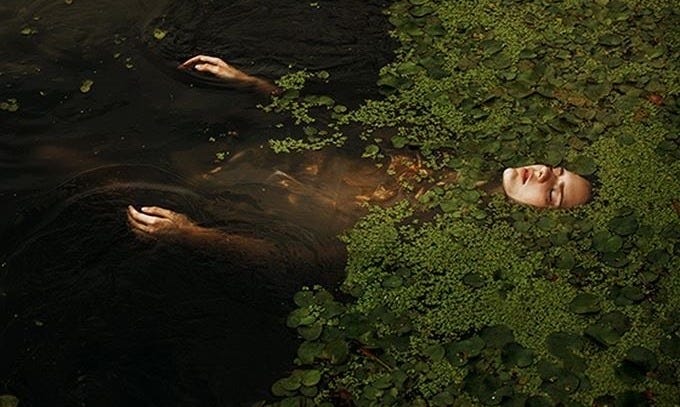This is the second part of a series but can be read independently. Part 1 is titled “you're the tastemaker now, and you're drowning” and Part 3 is titled “if you want a sense of self, make something”. Enjoy, scaredies <3
If you’re on a hike in the middle of nowhere and the guide gets lost, what do you do?
Do you scream for help? There’s no one. Do you go on your own? There’s no one there too.
In reality, you would probably stick with the guide. You would hope you could keep up. And you would pray they’d eventually find their way somehow.
Our internet sprites, the curators who populate the internet, act as our shepherds for the influx of information we encounter on the day to day. I wrote an article previously about how Taste has been democratized due to the influx of information and the rise of authenticity as currency.
Curators were our answer to this shift. But lately, the pace of curation has become its own kind of frenzy, matching or even outpacing the media it attempts to frame.
In this whirlwind, one has to wonder: have our guides lost the path themselves?
Our guides are our sifters. In the age of social media, algorithms foster a unique paradox to guides. To be relevant is to prioritize speed as a key metric for curation. A once fine-grain sieve gets modified. The holes get larger. The flow gets faster at the expense of a rock falling through.
Speed is more than just a metric, it is a determinant for survival.
Beyond quality—something curators generally manage well — we have a quantity issue. The constant barrage of manufactured content not only makes it harder to discern what truly matters, but it also diminishes the work of those curators who are trying to steer us through the chaos.
The funnel of creation to curation is starting to break.
the core problem
I remember, fondly, the times when we used to fight online.
Absolutely disrespectful, borderline uncalled for, and almost always coming from burner accounts, these debates on music videos, books, and the like were what made the internet go round. We never let anything just pass us by. Like colonizing astronauts, we always found a way to bring it down to earth to dissect it.
What we are missing here is not a better guide, it’s the time between stops to process what the guide is even saying.
The average TikTok user views about 167 videos per day. On Instagram, the average user typically engages with around 200 posts per day.
How many of those posts do you actually remember? Five? Three?
How many posts do you actually write home about? One?
Our ability to deliberate and disagree determines our discernment. To be able to receive a piece of content, digest it, and make your own opinion on it is a lost art that gave way to the flood.
Deliberation at its core takes time.
We are misers and cheats with time nowadays. Committing to one thing at a time seems like a stripping of our basic rights. Instead we multitask and circumvent, sacrificing the integrity of both tasks altogether.
there have been warnings
It’s absolutely insane that there were essays (warnings) written as early as the 1900s about this very thing that we are experiencing now.
Vannevar Bush in his seminal 1945 essay “As We May Think,” warned against the overwhelming growth of information and the accelerating pace of knowledge consumption. He cautioned that without reflection, “the investigator is staggered by the findings and conclusions of thousands of other workers—conclusions which he cannot find time to grasp, much less to remember, as they appear.”
He argued that the rapid intake of information in the (upcoming for them) digital age, without time to synthesize or reflect, will lead to shallow understanding and societal demise.
A German philosopher, Josef Pieper, in Leisure: The Basis of Culture argues that true thinking—what he calls contemplatio—requires leisure, not in the sense of idleness or entertainment, but as “an attitude of inward calm, of silence, of non-activity.”
Truly have felt like I’ve been in fight or flight since 2018, so this makes so much sense.
He goes as far to say that people that don’t have leisure are delusional because they can’t reconcile with what’s real or not.
“Leisure is a form of that stillness that is the necessary preparation for accepting reality; only the person who is still can hear, and whoever is not still, cannot hear. […] Leisure is the disposition of receptive understanding, of contemplative beholding, and immersion—in the real.”
When we lose the time and space to think deeply, we begin to live reactively, rather than reflectively, and we risk becoming no longer attached to meaning.
We are programming our brains to be quick decision-makers, but in turn make a plethora of assumptions and sacrifice critique entirely. Critique is the antithesis of assumption-making. It is questioning of our ethos and our basis of fact altogether.
We take shortcuts and navigate to the extremes. We support everything about something or absolutely nothing about it. Nuance suffers and so do we.
The speed of life nowadays will fight tooth and nail to clog our orifices and bury us alive in dirt and grime, but that in and of itself makes it even more necessary for us to excavate time to think.
Curation is not just a movement to simplify, it is a call for the rise of the public sphere so that we can actually discuss things that matter to us again.
the solution
So maybe we aren’t indubitably lost. At the end of the day, guides are the gateway to get us out of this hole.
The question is, how do we help them help us?
Ask your guides questions during the tour
Turning your passive experience into an engaging one gives you deeper insight into the ‘why’ behind the tour. What’s the culture preservation here? What’s not in the pamphlet? You might even ask them a question that helps you resonate with the experience more. Do this in DMs, or do this publicly so people can see. Just do it somehow.
Talk to your neighbor (GUIDES HATE HER)
Open up more spaces for deliberation. Online, offline, in comments sections, on story posts. The anxiety we have about talking to the people around us is stopping us from understanding.
Third spaces have warped to reflect our anxieties, too. What used to be places of conversation, now, are places where you side-eye strangers that take chairs from your lonesome-occupied table at coffee shops that serve espresso that survived the burning of the Salem Witch Trials.
I started a subreddit here to talk about media: join it and be reckless in the threads. There aren’t any rules as of now.
Talk about your experience out of the tour
Your tour group shouldn’t be the only people you engage with about the content you consume. Tell your friends even if they don’t listen to rap. Educate them, engage them. You’d be surprised the amount of congruencies between music, art, science, and psychology. Extrapolating your experiences to different realms makes you a better, more abstract thinker. You’ll have something to talk about more than likely.
At the end of the day, most curators are just doing their best. My favorite guides tend to be people of color. There’s a sense of “I’ll lose it all if I don’t deliver” that gives me an incentive to watch their content.
To get out of this mess altogether, read part three. If you like the mess a little (a lot), go read part one.
It hasn’t gone past me that this entire article is a critique and justification of my curation as well.
It’s almost better that way, I think.







i love this so much! you’ve addressed a lot of the anxieties i’ve had surrounding online interaction, especially worrying about being judged for asking for elaboration or starting a conversation online for fear of being in the wrong. we need to talk to each other more to break down the isolation and share the knowledge!! thank you for writing this <3
I absolutely adore your writing style. You mix personal statements and informative insight into a captivating, engaging conversation. About this specific post— I think everything leads back to capitalism and overconsumption by the means of making a profit. Especially the topics you’ve covered so far in this series.